 Joelle Gamble is director of the Roosevelt Institute Campus Network. “I became an economics nerd campaigning against tuition increases at the University of California,” she says. “I became engrossed in the intricacies of state tax policy—everything spiraled from there.” Here, she recommends five books elucidating race’s intersection with economics, accompanying “An Economic Program for #BlackLivesMatter.”
Joelle Gamble is director of the Roosevelt Institute Campus Network. “I became an economics nerd campaigning against tuition increases at the University of California,” she says. “I became engrossed in the intricacies of state tax policy—everything spiraled from there.” Here, she recommends five books elucidating race’s intersection with economics, accompanying “An Economic Program for #BlackLivesMatter.”
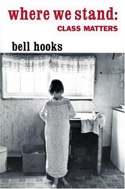 WHERE WE STAND
WHERE WE STAND
Class Matters
by bell hooks
Buy this book
This essay collection draws on hook’s personal experiences instead of relying on purely theoretical arguments about poverty. She is especially critical of economically secure liberals and radicals who, she argues, choose to downplay the importance of class privilege in comparison with race and gender—a criticism that she illustrates with examples from her own years studying and teaching at elite institutions. Rather than putting class at the top of a hierarchy of oppression, however, hooks demonstrates the interlocking nature of race, gender and class in straightforward prose.
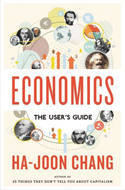 ECONOMICS
ECONOMICS
The User’s Guide
by Ha-Joon Chang
Buy this book
Chang’s accessible guide to contemporary economic thought, complete with hand charts, transforms economics into a flexible tool for understanding the world around us. He acknowledges that the version often taught in school—narrow neoclassicism—is not the only way of thinking about economics. Once economic thought gets out into the real world, Chang demonstrates, the intersections with race become clearer. There is also a good deal of humor throughout the book, refreshing in a subject known for being dismal.
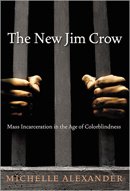 THE NEW JIM CROW
THE NEW JIM CROW
Mass Incarceration in the Age of Colorblindness
by Michelle Alexander
Buy this book
This excellent book lays out the brutal efficiency with which the American legal system has constructed and upheld a cycle of incarceration and social isolation targeting people of color. The New Jim Crow does a particularly excellent job of describing the economic barriers that convicted felons face for years, and the stigmas attached to a criminalized population. Through detailed explanations of pivotal court cases and policy battles, this book argues that the criminal-justice system renders many Americans second-class citizens.
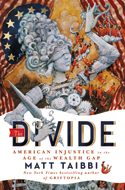 THE DIVIDE
THE DIVIDE
American Injustice in the Age of the Wealth Gap
by Matt Taibbi
Buy this book
Taibbi’s sharp reporting reveals which Americans are labeled “criminal” and subjected to the social and economic exclusion that comes with the term—disproportionately poor people of color, in contrast to wealthy, white-collar wrongdoers. He assesses how our under-resourced processing systems, prosecutors’ use of petty (often erroneous) charges, and perverse incentives for law enforcement ensure the perpetual harassment of impoverished communities by the police. Taibbi paints a compelling picture of how the economy and the criminal-justice system are linked and, at times, codependent.
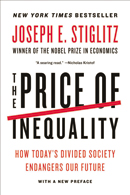 THE PRICE OF INEQUALITY
THE PRICE OF INEQUALITY
How Today’s Divided Society Endangers Our Future
by Joseph E. Stiglitz
Buy this book
Today’s inequality is the result of moneyed interests using public policy as a tool to guard their wealth, argues the economist Joseph Stiglitz. He demonstrates that income inequality results from political activity rather than an “invisible hand,” thereby pointing toward aggressive policy solutions for lifting up those at the bottom. Because people at the top of the economic ladder are disproportionately white, Stiglitz’s arguments about economic justice illuminate the nexus of race and economics and must play a part in any conversation about achieving racial justice.


